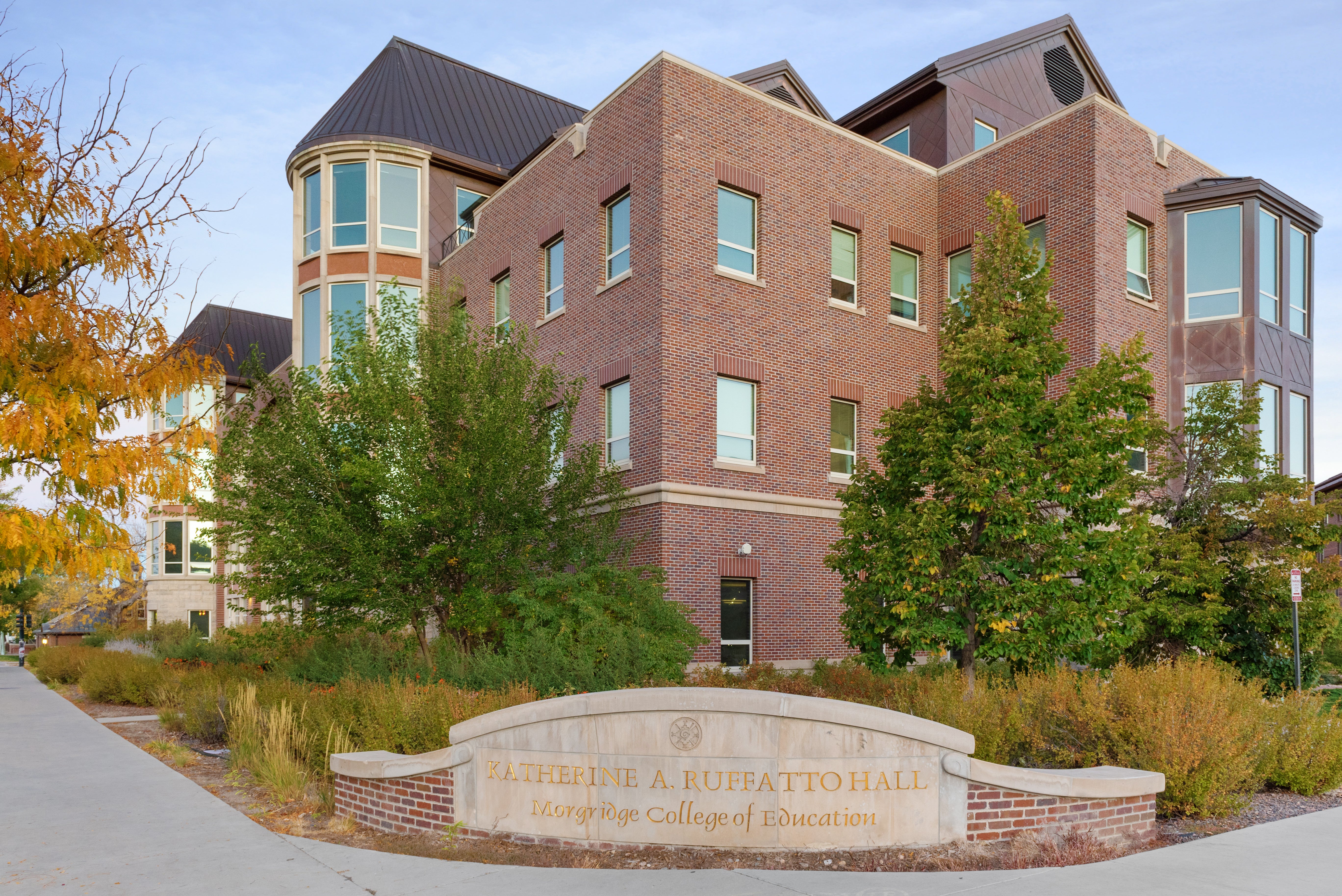The social sciences and business fields have a growing need for professionals with strong skills in research design, statistics, qualitative and mixed methods, and program evaluation. The Research Methods and Statistics (RMS) PhD program provides the courses and experiences necessary to conduct and supervise effective social science research. The program is individually planned around students' backgrounds and career goals. Small seminars, independent projects and research practicum offer opportunities for an individualized and well-rounded program.
As a PhD student, you will gain cutting-edge research skills, a creative educational vision, social responsibility and sufficient experience in the application of your skills and knowledge to achieve mastery. Upon completion of your PhD, you will be prepared for positions that require consulting, research, developing measurement instruments, data-driven policy-making and teaching. Graduates with RMS degrees hold professional positions in testing and program evaluation companies, nonprofit organizations, universities, school districts, and state and service agencies, among others.
Start Dates: Fall
Curriculum: 90 Credit Hours
Program Length: 4-7 Years
$101k Average annual salary with a PhD in Research Methodology Payscale.com
85% Doctoral program completion rate
100% Percentage of admitted students who receive some form of tuition assistance from the Morgridge College of Education
PhD in Research Methods and Statistics
Your Doctorate Curriculum Includes:
Quantitative research methods
Master cutting-edge statistical techniques to unlock insights from complex data sets and model intricate relationships between variables. Our Advanced Measurement and Structural Equation Modeling courses equip you with the tools to address challenging research questions and lead innovative projects in your field.
Qualitative research methods
Uncover deep insights into human behavior and complex social phenomena with our Qualitative Design and Analysis courses. Gain essential skills in qualitative research methods, enabling you to explore, measure and interpret rich, nuanced data to answer the most challenging research questions in your field.
Mixed methods research and program evaluation
Master the integration of qualitative and quantitative data through our Mixed Methods Research and Program Evaluation courses. Equip yourself with the ability to combine diverse data sets and evaluate programs effectively, offering a comprehensive research approach that’s highly valued in academia, industry and policymaking.
Research practicum and dissertation research
The research practicum and dissertation research courses allow students to apply their skills in real-world settings, offering invaluable hands-on experience. This practical immersion not only sharpens their research expertise but also promotes professional growth, preparing them to excel in various industries and professions.
Career preparation
Comprehensive career preparation is at the heart of this program, equipping students for success in a wide range of professional paths. Whether pursuing roles in academia, industry, government or nonprofit sectors, graduates are strategically positioned with the skills and expertise needed to thrive post-graduation. The curriculum is designed to ensure adaptability and leadership in diverse research and applied settings.
Request for Information
Application Information
The Research Methods & Statistics (RMS) Core
Qualitative Methods
- RMS 4941 - Introduction to Qualitative Research
- RMS 4942 - Qualitative Data Collection and Analysis
Quantitative Methods
- RMS 4910 - Introductory Statistics
- RMS 4911 - Correlation and Regression
- RMS 4912 - Analysis of Variance
- RMS 4921 - Psychometric Theory
- RMS 4930 - Quantitative Research Design
Transdisciplinary Methods
- RMS 4931 - Survey and Design Analysis
- RMS 4951 - Mixed Method Research Design
- RMS 4952 - Research Ethics
- RMS 4960 - Introduction to Evaluation Research
Practicum
- RMS 4980 - Practicum in Research
or RMS 4979 - Qualitative Research Practicum
or RMS 4981 - Community-Based Research Practicum
or RMS 4982 - Practicum in Evaluation Research
Independent Research
- RMS 5995 - Independent Research
- RMS 5771 - RMS Dissertation Research Seminar
or RMS 5995 - Independent Research
Specialization - 38 Credit Hours
Doctoral Program Specializations
Specialization in Qualitative Research Methods
- RMS 4940 - Structural Foundations of Research in Social Sciences
- RMS 4946 - Advanced Qualitative Research
- RMS 4945 - Community-Based Research
- RMS 4947 - Arts-Based Research
- RMS 4948 - Criticism and Connoisseurship: Qualitative Research and the Enhancement of Practice
- RMS 4914 - Structural Equation Modeling
or RMS 4915 - Hierarchical Linear Modeling
or RMS 4916 - Latent Growth Curve Modeling
or RMS 4922 - Item Response Theory
or RMS 4924 - Advanced Measurement
or RMS 4963 - Evaluation Research Practice I
or RMS 4964 - Evaluation Research Practice II - Cognate: Any Graduate-Level Course to Meet the Credit Minimum
Specialization in Quantitative Research Methods
- RMS 4914 - Structural Equation Modeling
- RMS 4915 - Hierarchical Linear Modeling
- RMS 4916 - Latent Growth Curve Modeling
- RMS 4922 - Item Response Theory
- RMS 4924 - Advanced Measurement
- RMS 4946 - Advanced Qualitative Research
- RMS 4945 - Community-Based Research
- RMS 4947 - Arts-Based Research
- RMS 4948 - Criticism and Connoisseurship: Qualitative Research and the Enhancement of Practice
- RMS 4963 - Evaluation Research Practice I
- RMS 4964 - Evaluation Research Practice II
- Cognate: Any Graduate-Level Course to Meet the Credit Minimum
Specialization in Transdisciplinary Research Methods
Quantitative Methods
- RMS 4914 - Structural Equation Modeling
- RMS 4922 - Item Response Theory
- RMS 4924 - Advanced Measurement
Qualitative Methods
- RMS 4945 - Community-Based Research
- RMS 4947 - Arts-Based Research
- RMS 4948 - Criticism and Connoisseurship: Qualitative Research and the Enhancement of Practice
Transdisciplinary Methods
- RMS 4963 - Evaluation Research Practice I
- RMS 4964 - Evaluation Research Practice II
- RMS 4969 - Topics in Program Evaluation
- RMS 4982 - Practicum in Evaluation Research
- Cognate: Any Graduate-Level Course to Meet the Credit Minimum
Specialization in Institutional Research - Higher Education
The Institutional Research (IR) Core
- MGMT 4201 - Fundamentals of Managing and Leading
- or MGMT 4202 - Leading Self
- or MGMT 4301 - Organizational Behavior
- or MGMT 4303 - Negotiating With Power
- or MGMT 4304 - Project Management for Leaders
- RMS 4914 - Structural Equation Modeling
- RMS 4922 - Item Response Theory
- RMS 4924 - Advanced Measurement
Higher Education Courses
- HED 4211 - Current Issues in Higher Ed
- HED 4212 - Introduction to Public Policy and Higher Education
- HED 4214 - History American Higher Ed
- HED 4220 - Organizational Theory in Higher Education
- Cognate: Any Graduate-Level Course to Meet the Credit Minimum
Specialization in Institutional Research - Information Science
The Institutional Research (IR) Core
- MGMT 4201 - Fundamentals of Managing and Leading
- or MGMT 4202 - Leading Self
- or MGMT 4301 - Organizational Behavior
- or MGMT 4303 - Negotiating With Power
- or MGMT 4304 - Project Management for Leaders
- RMS 4914 - Structural Equation Modeling
- RMS 4922 - Item Response Theory
- RMS 4924 - Advanced Measurement
Information Science
- LIS 4010 - Organization of Information
- LIS 4206 - Web Content Management
- LIS 4404 - Metadata Architectures
- LIS 4702 - Type of Library: Topics
- LIS 4820 - Digitization
- Cognate: Any Graduate-Level Course to Meet the Credit Minimum
Specialization in Institutional Research - Disciplinary Methods
The Institutional Research (IR) Core
- MGMT 4201 - Fundamentals of Managing and Leading
- or MGMT 4202 - Leading Self
- or MGMT 4301 - Organizational Behavior
- or MGMT 4303 - Negotiating With Power
- or MGMT 4304 - Project Management for Leaders
- RMS 4914 - Structural Equation Modeling
- RMS 4921 - Psychometric Theory
- RMS 4924 - Advanced Measurement
- Cognate: Any Graduate-Level Course to Meet the Credit Minimum

Get Started on Your PhD in Research Methods and Statistics
Build your career in research or education with a PhD from the University of Denver’s Morgridge College of Education







